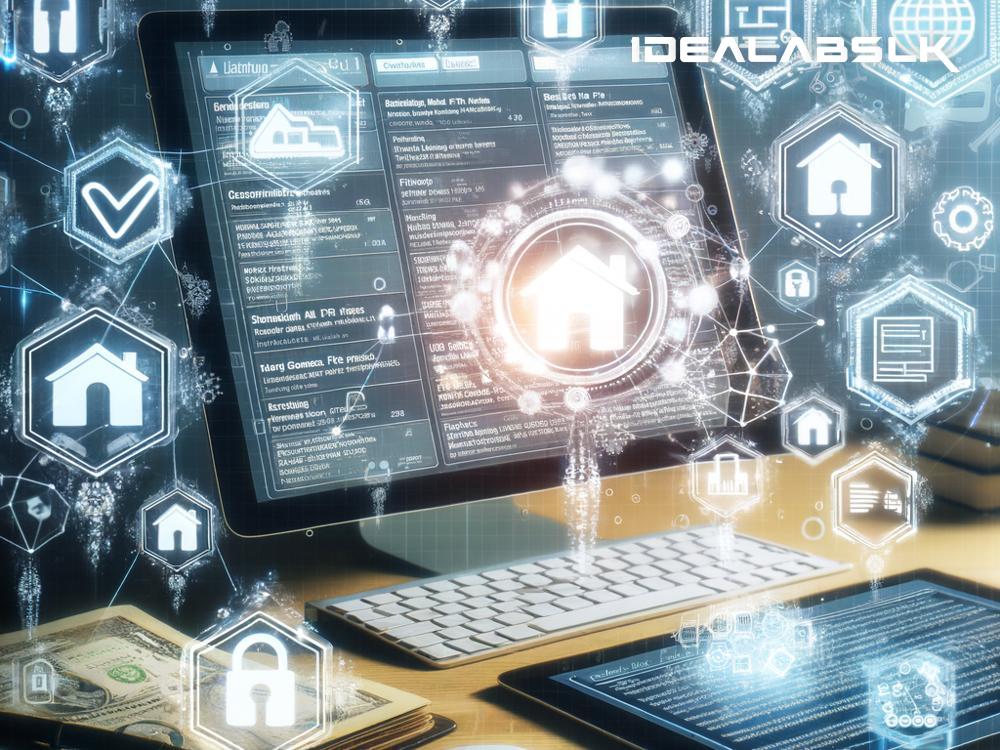Blockchain-Based Real Estate Registries for Secure Ownership: A Homebuyer’s Guide
Real estate, a cornerstone of wealth and security for many, has long suffered from a historical challenge - the secure and transparent registration of property ownership. This process, often bogged down by paperwork, bureaucracy, and sometimes, regrettably, fraud, has been ripe for a revolution. Enter blockchain: a technology that is not just transforming the way we bank, invest, or browse the internet but is also setting the stage for a major upheaval in how we buy, sell, and register property. In this post, we’re diving into the world of blockchain-based real estate registries and how they promise a more secure future for homeowners around the globe.
What is Blockchain, Anyway?
Before we leap into how blockchain is reinventing the wheel in real estate, let’s break down the basics. Imagine blockchain as a digital ledger - much like a notebook, but instead of being kept in a drawer, it's stored across thousands of computers worldwide. Each "page" of this notebook (block) records information, and once the page is full, it’s sealed and linked to the previous one, forming a chain - hence, blockchain. This structure makes altering information extremely difficult, offering a level of security and transparency previously unseen in digital transactions.
Shifting Bricks and Mortar onto the Blockchain
Real estate transactions involve several key steps - identifying a property, verifying its ownership history, negotiating terms, and finally, registering the new ownership. Historically, this process has been heavily reliant on paper documentation and government or other third-party registries, which can be slow, opaque, and sometimes inaccurate.
This is where blockchain-based registries come in. Here, every transaction related to a property is recorded chronologically on a blockchain. This could include the initial registration, any transfers of ownership, mortgages, or even rental agreements. Once a transaction is recorded, it cannot be altered or deleted, creating a tamper-proof history of the property’s ownership.
The Benefits on the Block
1. Security: Given the immutable nature of blockchain, once an ownership record is entered, it’s virtually impossible to fraudulently alter it. This significantly reduces the risk of fraud, a persistent concern in the real estate sector.
2. Transparency and Accessibility: With records stored on a blockchain, anyone - from potential buyers to government agencies - can view the transaction history of a property instantly. This transparency ensures that all parties have the same information, making disputes less likely.
3. Efficiency and Cost Reduction: By cutting out the intermediaries typically involved in real estate transactions (like lawyers, brokers, and government registries), blockchain can make buying or selling property faster and cheaper.
The Real-World Application
Several countries and companies are experimenting with blockchain for real estate to varying degrees. In Sweden, the land registry authority has been trialing a blockchain project to digitize property transactions. In the United States, startups such as Propy are facilitating international property transactions entirely on a blockchain, illustrating the technology’s potential to simplify and secure real estate dealings across borders.
Potential Roadblocks
While the benefits are clear, the transition to blockchain-based real estate registries isn’t without its challenges. Legal frameworks that govern property rights and transactions need to evolve to accommodate blockchain’s novel approach. Moreover, the technology’s relatively complex nature means that widespread adoption will require significant education and infrastructure adjustment.
The Future is Now
We’re on the cusp of a real estate revolution. As technology continues to evolve and integrate into our daily lives, blockchain stands out as a beacon of security, transparency, and efficiency in property transactions. While we navigate the challenges and adapt to this new digital landscape, the promise of a simplified, secure way to buy and sell property is an exciting prospect.
Blockchain-based real estate registries aren’t just a theoretical innovation; they are a practical solution to age-old problems that could truly transform the market. As this technology matures and becomes more widely understood and accepted, we could see a world where property transactions are as straightforward and secure as sending an email. For homeowners and buyers, this means a future where the stress and uncertainty of property transactions are things of the past, replaced by a system that is equitable, fast, and, above all, secure.

